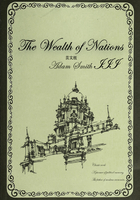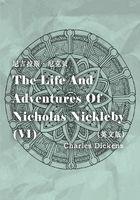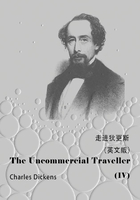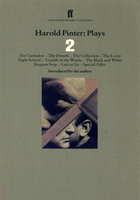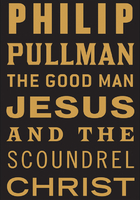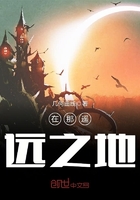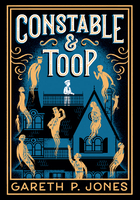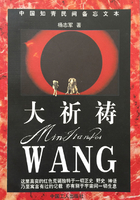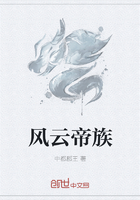Stop at Every Oasis
The more you stop, the farther you go.
—Desert proverb
Tallis chose five rocks and took aim. Three of my five shots had already found their mark—another road sign no one could read.
Bang!
“One for one!” he called out.
There was certainly no shortage of stones. The northern Sahara consisted of stones piled in heaps, scattered over high plateaus, stone hills, stone valleys. Everything was ancient rock except for the narrow ribbon of black asphalt that snaked down the leeward side of Algeria’s Atlas Mountains. According to Jean-Luc, this was the desert. And he was, after all, the expert.
“Jean-Luc is getting on my nerves,” I said.
Tallis drilled the sign with another direct hit. “Two for two.”
“I can’t stand listening to him all day in the car. He thinks he knows everything. He says this pile of rubble is the desert. This isn’t a desert; it’s the Flintstones’ backyard!”
Tallis, left, and I throwing rocks in the northern Sahara.
Tallis cocked his right arm. “What’s it matter to you? At least we’re heading south.”
“Ha! You missed. You’re two for three!”
“Your whining is distracting me,” Tallis complained.
“Complain all you want, but if I win, I get your transistor radio,” I shot back.
“Yeah, and if I win, I get your sleeping bag.”
Bang!
“Three for four—we’re tied!” Tallis shouted.
Creature comforts were becoming more important. While the Frenchmen bedded down in their vehicles, we slept outside on army cots. Tallis coveted my thick down sleeping bag for the frigid desert nights. I wanted his radio. He spent hours searching for a shortwave transmission from his beloved Canadian Broadcasting Corporation. I preferred the exotic wailing chants of real Arabic music.
“Allons-y,” Jean-Luc called out.
It was time to go. Tallis’s rock sailed wide of its target.
“It’s a tie. You freeze again tonight!” I taunted him.
We climbed back into the vehicles. André and Tallis led the way in the little Citro?n truck. As the road began descending to a plateau, André pulled onto the shoulder and stopped.
“Now what?” I mumbled to myself. Then I saw it: hundreds of thousands of palm trees, vast groves, green geometric swaths blotting the desert below. Closer to us, rising from the baked desert rocks, were the five towns of the M’zab oasis. Five hills, each with a mosque at its pinnacle and a medieval wall encircling the thousand-year-old buildings. André was pointing at one of the hills.
“Voilà Ghardaia,” he said.
Our first oasis—the view was breathtaking. I felt like I’d stepped back in time to a story from A Thousand and One Nights. I couldn’t wait to explore it. Then I looked at my watch; it was 10:30 in the morning. We’d only been driving a couple of hours.
I asked Jean-Luc and André if we were going to stop at Ghardaia.
They looked at me the way all Frenchmen look at an American when he says or does something unimaginable. Jean-Luc shook his head and walked back to the Peugeot. André looked at me and spoke solemnly.
“Dans le désert, on s’arrête à chaque oasis.” (In the desert, we stop at every oasis.)
The French have perfected that look. It conveys shock, dismay, disapproval—even disgust. The closest North Americans get to that expression is when a cell phone rings at a funeral and your distant cousin who sells time-share condos reaches into the pocket of his shiny suit and takes the call.
It’s too bad there isn’t someone to give us that same look whenever we consider skipping an oasis. Whether we work through lunch, give up our Saturday morning run, cancel our massage, take our laptop on vacation, or answer the phone during dinner, we are breaking a desert rule: stop at every oasis.
There ought to be a software program for your Palm-Pilot or computer calendar whereby every time you scheduled work on the weekend, a picture of some snooty French person with that expression of dismay would pop up on the screen. Better yet would be that classic image of a bedraggled French Foreign Legionnaire crawling over a sand dune, hoping he’ll see an oasis and its life-giving sustenance. That image is actually more appropriate; most of us are like that legionnaire—in desperate need of an oasis.
In the Sahara there are three reasons to stop at an oasis. First, you need to rest and rejuvenate. Second, you must reflect on your journey and make changes if necessary. Finally, at the oasis you can connect with other people who are on the same journey. Everyone knows that we need to take time for ourselves to do the important things, not just the urgent ones. But why don’t we stop?
The problem is that we think like mountain climbers. We suffer from summit fever. We push just a little harder, hoping we can rest when we get to the top. When we postpone an oasis until our to-do list is finished or until we’ve answered all of the 193 emails in our in-box, then we have summit fever. Putting off any oasis until the reorganization at work is over, the kids finish school, the divorce is final, or we retire means that we’ve made the destination our priority. When retirement becomes the great oasis where we make up for all the ones we skipped en route to our summit, we know that we’ve forgotten this crucial rule of desert travel.
Even mountain climbers know the danger of this mental state. Many climbers on Everest have lost toes and fingers to frostbite, and even their lives, when they pushed for the summit in a state of extreme fatigue. Fortunately, few Saharan travelers suffer from summit fever. That’s because there’s no summit—just the same distant horizon as the previous day. Desert travelers look no further than the next oasis. By seeing life as a desert and not a mountain, we create a fundamental shift in how we take care of ourselves and our significant relationships.
Strangely enough, stopping to rest and rejuvenate allows us to get more done. It takes four times as long to recover from burnout as it does to prevent it. The desert wisdom at the beginning of this chapter is paradoxical: the more you stop, the farther you go. Nomads remember what we have forgotten—that by stopping more often, we can actually travel deeper into the deserts of life.
Rejuvenation is about more than getting enough sleep. We need time alone, unstructured time, for things like staying in bed and reading the weekend paper from front to back. We need to play, to laugh, to make love, or to drink an exquisite bottle of red wine.
Once upon a time, hanging a sign on your office door that read “Gone fishing” was a legitimate way of announcing that you’d taken the afternoon off work. Now it’s just the opposite. We should be hanging a sign on our empty beach towel or those dusty golf clubs that explains our absence from an oasis. The sign might say, “Checking my email.”
Unrelenting summit fever drives us to get things done, but the deserts of life and change will exact their toll if we don’t stop at every oasis.
André was twirling a dish towel over his head like David taking aim at Goliath. Bits of leafy greens were flying through the air. Tallis and I watched with amusement. He spread the towel on the hood of the Peugeot and said, “Voilà!” There was the result of his afternoon at the oasis: fresh salad, washed and spun dry in the French dishtowel method. He explained that Ghardaia was our last chance to eat fresh greens, and he began concocting a vinaigrette dressing.
Jean-Luc was loading jerry cans of water and gasoline into the space that had previously been the backseat of the Peugeot. Tallis sat down on the discarded car seat and poked at the fire. We were both exhausted from exploring the oasis. After wandering through the maze of Ghardaia’s narrow cobblestoned streets, I had talked him into visiting some of the other villages of the M’zab. We trudged through the punishing desert sun from one walled town to the next. However, at each gate a bearded man in a turban and baggy pants stood up to block our entrance.
Ghardaia, our first oasis town.
The Mozabites fled into the desert 1,000 years ago to escape persecution in the north. To protect and preserve their culture, they closed most of the towns of the M’zab to outsiders. They regarded Tallis and me as barbarians at the gate.
We camped on the roadside about a mile out of the oasis. The sun set quickly, like a flare that had been shot over the horizon. Once dinner was over, the chill of the desert night drove us quickly into our sleeping bags and vehicles. A car full of young men passed by slowly.
“Did you see that car? They’ve done that a few times,” I said to Tallis.
“Done what?”
Before I could answer, they started honking their horn and yelling at us.
“What do you think they’re saying?” I asked Tallis as I zipped up my sleeping bag.
“Who knows? Perhaps it’s ‘Welcome to Algeria,’” he responded sarcastically.
André got out of his truck to see what the commotion was about. The carful of Algerians had turned around and was coming back. I asked the older Frenchman if we were safe. He patted me reassuringly on the shoulder.
“Oui, aucun problème.”
Then he climbed back into the truck and I heard him locking the doors. The car slowed down. They turned their headlights off but kept driving slowly past. This time they pointed and laughed at us.
The walls around the oasis towns made a lot of sense to me now. I felt completely exposed and unprotected. These barbarians were invading my oasis of sleep. The car continued up the road with its lights off, and I couldn’t tell if it was turning around or continuing on. My ears strained for a sound to indicate what it was doing. Headlights appeared, high beams, and the car roared past us with laughter and loud Arabic music pouring out of it.
The wall around an oasis keeps bandits, barbarians, and nonbelievers at bay. A wall also provides protection from sandstorms. It defines the boundary of your refuge. You feel safer because the wall separates the desert from the oasis.
The digital age has made life easier and safer by eroding many irritating barriers. We can now work from home via fax and the Internet. Our teenagers are never farther away than a cell phone call. Videoconferencing brings meeting participants face-to-face when they’re a continent apart. However, we’ve also lost many of the boundaries that naturally defined and defended our oases. Home-office paperwork spills onto the kitchen table, and the business phone rings at 3 a.m. Cell phones find us on vacation or on the golf course. We’ve become more accessible to our clients, coworkers, and kids, thanks to the digital revolution. Telemarketers and email spammers know what we buy, when we’re home, and how to reach us. “The walls have come down” is a rallying cry of the postmodern world. It’s also a lament for a time that was slower and had clearer boundaries between work and rest.
Build a Wall
The single most important thing we can do is to put a wall around our oasis. This can be as simple as unplugging your phone at night. An agreement with family members to enjoy dinner and not answer the phone is a wall. Leaving your laptop at home when you go on vacation is like installing a turbaned guard in baggy pants at the oasis of your summer holidays.
Somewhere along the road to prosperity, we’ve lost hold of the most powerful two-letter word in the English language: no.
“Can you work late?” “Of course!”
“Can you come in on the weekend?” “Absolutely.”
No is a wall.
To the Mozabite elder, Tallis and I were easy to identify as westerners. Even Algerians who are not from the M’zab are evident by their dress or language. But the barbarians who invade our oases can be more difficult to identify. Sometimes they are the people we love the most.
Our children, spouses, partners, parents, friends, and coworkers can be the most persistent invaders. Spouses and partners need time alone, away from each other. A husband and wife need time together away from the kids. Our business colleagues don’t need to call us on the weekend. But it’s our job to put up the wall. Intending no harm, Tallis and I would have walked unknowingly into the closed towns of the M’zab oasis. But there was a wall, a guard, and a gate.
Sometimes our own thoughts, fears, and mind chatter can be the barbarians invading our oasis. When my son was born, he almost died. He was flown by helicopter to Toronto’s Hospital for Sick Children, and his life was saved. But the two weeks spent at his bedside in the neonatal intensive care unit were a desert for his mother and me.
Every couple of hours I would go outside for a short walk. This was my oasis. But as soon as I left the hospital, I began worrying. “What if he dies when I’m away? What if he’s had brain damage from lack of oxygen?” Fear and worry were the barbarians that invaded my much-needed oasis. I would return to the hospital more distraught than when I left for my walk.
I decided to have imaginary conversations with him while I walked the downtown streets of Toronto that August. I told him about all the things we’d do together: play catch, go for bike rides, go fishing. My imaginary conversation was a wall that kept the fear away. Gradually I began to notice the vibrant urban life around me. I would watch street performers or walk through the shaded grounds of Queen’s Park. Refreshed, I could rejoin my wife in the desert of our bedside vigil.
The next time you go to the bathroom, leave the door unlocked. See how much you enjoy that. No one ever questions the necessity of a latch on that door. It’s one of the few oases that still have a wall. Start putting up more walls. It will actually allow you to be more available when you’re not at an oasis.
Think of a desert you are crossing. What kind of oasis do you need? Should you be sleeping more? Do you need a massage every week? Should you reflect on your compass heading? Would you like to connect with your kids, your partner, or an old friend?
Next, make a list of the barbarians that could invade your oasis: friends, relatives, colleagues, kids, bosses, clients, commitments, projects, your to-do list, your own perfectionism.
Finally, put a wall around your oasis. Put up a clear boundary that separates desert from oasis. Be prepared. The nonbelievers will test you. We live in a world of nonbelievers—infidels who do not respect the oasis concept. Even parts of us are nonbelievers. We can be our own worst barbarians. Our inability to say no is sneaky. It tricks us into unlocking the gate to our oasis. Our sense of perfection whispers in our ear and promises us a well-deserved break if we put off our oasis until the desert is crossed. Yes, the mountaineer in nomad’s clothing can be the most dangerous barbarian of all.
Ghardaia is the gateway to Algeria’s Sahara. Oncoming traffic all but ceased once we left the oasis of the M’zab behind us. Hours would pass without seeing another vehicle. We drove in silence. Somewhere south of Ghardaia, as our small convoy sped along the single lane of asphalt deeper into the void of the world’s greatest desert, I realized that I hated Jean-Luc. I couldn’t put my finger on it. There was no single incident or act that caused me to feel the way I did. Maybe we were just too different, or perhaps too similar.
El Golea, the next oasis, was less than a day’s drive, but I was already thinking of In Salah, the third oasis. There were rumors that In Salah was infested with malaria-carrying mosquitoes. I was taking my antimalarial medication, but Jean-Luc wasn’t. I fought past my increasing dislike of the single-minded engineer to try to convince him to start popping his pills. But it was in vain. He just wouldn’t listen to me.
“C’est impossible. Les moustiques n’existent pas dans le désert.”
Yes, Jean-Luc was the expert, not only about the desert but about malaria as well. He’d previously contracted the disease in equatorial Africa. According to Jean-Luc, there was no need to take the antimalarial medicine until we crossed the Sahara. According to my guidebook, having been previously infected, he was at even greater risk.
We arrived at El Golea in the brutal midafternoon heat. It must have been over 100 degrees. And this was January—I couldn’t imagine what the summer must be like. No wall around this oasis. The desert seemed to blow right through it. We managed to wake an employee of the only gas station to refuel. Neither Jean-Luc nor André had any interest in stopping for anything other than gasoline and water.
André pointed out a small villa on the edge of town. There was a low wall around the dun-colored buildings. He explained that it was a French Catholic mission. Large deciduous trees offered welcome shade, and the grounds seemed peaceful. I wanted to go there and wander around. I needed to think, to reflect on our situation. I needed to be alone. We seemed to be heading toward disaster. Jean-Luc wasn’t taking antimalarial drugs, I hated his guts, and we were not stopping at every oasis.
“On roule!” Jean-Luc called out.
We climbed into the vehicles and headed south toward uncertainty at In Salah.
Another reason to stop at an oasis is to reflect. The calm and tranquillity allow you to look back on the stretch of desert you’ve recently crossed. If problems have arisen, they can be thought through and remedies implemented. You can also look forward and see if you’re heading in the right direction. The reflecting at an oasis is a time to look at the big picture. Many Saharan oases are also intersections of highways or caravan routes. At an oasis we can change direction after we’ve reflected.
Many of us reflect on our direction in life only when crisis, tragedy, or perhaps a significant birthday forces us to look at the inner compass we’ve been following. Sometimes we even resist those natural opportunities to review our life and direction. When I turned 29, an older friend of mine said, “Oh boy, next year’s the big 3-0! Are you ready for that?” I had never really thought about turning 30, but the more I thought about it, the more daunting it seemed. I started to tell people I was 30 years old. I thought that practicing while I was 29 would give me a year to prepare for the shock and tragedy of getting old. People would ask me how it felt to be the big 3-0. I’d say, “Kind of like 29.” When I finally did turn 30, it was a breeze. No sweaty palms, no checking the mirror for signs of aging, and definitely no reflecting.
It worked so well that I tried the same mental trick when I turned 39. After two weeks of lying about my age, I realized that I was a complete moron. In fact, I noticed a yearning to do exactly what I’d avoided 10 years earlier: reflect on my life and on getting older. Not only was I entering my fifth decade, but also we’d just moved our family across the continent, my wife and I were building our dream house while our marriage was falling apart, and my business was nose-diving. I desperately wanted to reflect on my life, take stock of my situation, reassess my direction, and make some changes.
Water What’s Dry
One way to decide what type of oasis you require is to water what’s dry. If your desert is chaotic, you need to find peace and quiet, meditate, take a yoga class. If you spend all day with small children, your oasis might require adult conversation. If you spend most of your day alone, then getting out for social interaction is an oasis. Peering into a computer screen all day is a digital desert. Sinking your hands into the loamy soil of your flowerbed and admiring the radiance of flowers might be just the oasis you need.
Different deserts require different oases. As my life was falling apart at 39, I needed an oasis of reflection. My inner reflective world was parched. When my friend Pam’s husband died suddenly of a heart attack, she became a widow and single mother of four at the age of 45. Her weekly massage became an oasis of physical contact, the water of life in her desert of loss and loneliness.
Don’t try to turn your entire desert into a lush garden. If your husband just died, then grief and loneliness are part of your desert. But brief respites, whether a massage or a chat with a dear old friend, can sprinkle a little water onto the dust.
I read an article about a funeral director who worked as a clown on weekends. If your desert is serious, you need to have fun. Many of those nasty-looking leather-clad bikers on Harley-Davidson motorcycles are accountants, actuaries, and high school vice principals. If you spend all day following or enforcing rules, then your oasis might be about rebelling.
Many of us have to be nice all day long. It’s called customer service. To water what’s dry means that we need an oasis where we can get even! Maybe that’s slamming a volleyball or annihilating an opponent in a squash match. It might be as simple as destroying an ancient civilization in a video game. A desert is defined by its lack of water. Notice what is dry, what is missing in your life. Use that as a guide to what kind of oasis you need.
I watched Tallis trudging back to our campsite on the edge of In Salah, his camera bag slung over his shoulder.
He was returning from shooting pictures of the massive I dunes encroaching on the oasis.
“Did you get any good shots?” I asked.
“Yeah, the late afternoon sun was at the perfect angle. How’s Jean-Luc doing?”
“Not well. André says his fever keeps climbing,” I replied. “He says it’s almost 40. But I’m not sure what that means in Fahrenheit.”
“He must be at 102 or 103; that’s not good,” Tallis said gloomily.
Nothing had been good since we arrived at In Salah. The place was a fetid, swampy desert junction swarming with mosquitoes. The stillness of the evening brought a pestilence of buzzing deadly vectors. Jean-Luc was delirious with some kind of fever—probably a malarial relapse.
“I wish he would’ve listened to me. That guy is so stubborn, such a know-it-all. And now look what’s happened,” I complained.
Tallis nodded but kept quiet. I got up and walked toward the dunes to reflect on our situation. I realized that not long after we left Paris, I’d decided that Jean-Luc was a typical arrogant Frenchman. I’d made no real effort to get to know him. Perhaps he’d have listened to me if I’d been able to connect with him on a personal level. I started to think about André. He seemed aloof and unapproachable. I found it hard to talk to him.
When I got back to the campsite, I saw that Tallis had started a fire. A light breeze encouraged the flames and meant that the mosquito assault would be seriously diminished. Perhaps our luck had changed. André emerged from the palmthatched hut we’d rented for Jean-Luc. He was smiling.
At the oasis you can connect with other travelers.
“Sa fièvre est tombée.”
What great news! Jean-Luc’s fever had broken. Dinner was livelier than any meal we’d shared before. We all realized that we’d dodged a bullet. When the time was right, I wanted to connect with Jean-Luc; but what about the other Frenchman? I wondered how I could relate to this man who was older than my father. I asked him what he was like when he was my age.
“Que faisiez-vous à mon age?”
He paused and looked us over. He seemed to be considering something. The fire illuminated his strong Gallic face and swept-back hair. For the next hour he described his early 20s in Normandy as a member of the French Resistance in World War II. His parents never knew what he did. He kept it secret to protect them. While they slept, he blew up German munitions dumps, searched for downed Allied pilots, and radioed British intelligence. They thought he was lazy, since he slept late every morning.
“Can’t judge a book by its cover,” Tallis whispered to me, smiling.
He was right. I had thought André was some old fart from Normandy who pressed pants. I was glad we had connected; I was relieved that Jean-Luc would recover. When it was time to go to sleep, André grabbed a shovel and scooped the hot embers from the dwindling fire and spread them on the sand under our cots to warm our backsides. I settled into my sleeping bag as the glowing coals chased away the chill of the desert night.
“Bonne nuit, mes amis,” André called to us as he climbed into his truck.
It was the first time he had called us his friends. How things had turned around! I’d never expected this kind of oasis.
The third reason to stop at an oasis is to connect with fellow travelers. When you’re driving in open desert, your attention is commanded by the numerous hazards. Even the long stretches of paved road make real conversation difficult. The silence and vastness of desert terrain lull you into a kind of trance. The Sahara becomes a solitary experience even though you’re sitting a couple of feet away from someone. Only in the walled-in safety of an oasis can you truly connect with fellow travelers. Aside from making the journey more pleasant, the quality of your relationships can be a matter of life and death.
There’s a scene in the movie About Schimdt where a recently retired Jack Nicholson looks at his wife of 42 years, snoring in the bed next to him, and wonders, “Who is this old woman who lives in my house?” They have become strangers. The long deserts of life, career, and family can put us into a kind of trance, and we don’t connect with those who matter most to us.
Trying to cope in a desert of change takes so much of our time and energy that we can gradually disconnect from spouses, lovers, colleagues, and kids. The dunes of job loss or divorce, the searching of midlife, the financial concerns or radical adjustments of retirement, are liable to make us withdraw from connecting with others so that we can deal with our desert.
Once again, misplaced summit fever causes us to put off the important oases of connecting because we think we’ll have more time once the job, project, merger, to-do list, is done. But deserts go on and on, and by the time we make it to the other side, we might leave a trail of discarded relationships. If you’re in a desert, the oasis comes first. And one of the things we must do at an oasis is connect.
The Michelin map of the Sahara shows all the major oasis towns, such as Ghardaia, Tamanrasset, and Timbuktu. It also marks small, remote wells, often no more than a hole in the ground with a bucket on a rope. It’s good to plan ahead for an oasis that’s clearly marked.
When my son was 11, he came home with a notice from the school nurse announcing a course titled “Studies in Healthy Sexuality.” Parents were encouraged to begin discussing the facts of life in advance of the formal instruction at school. I read an article about a father who had used this potentially awkward moment to become closer to his son. I realized that this was an excellent opportunity for us to connect. This oasis was on the map. The dad in the article had found it, and so would I. We got a book at the library.
We sat down one Saturday afternoon to find this special oasis. Chapter 1 contained everything I knew about sex, and then some. But there were 17 more chapters. When we were finished, we were both stunned. No connecting, just silence. We went for a walk through a park. Finally my son stopped, looked up at me, and said, “Dad, what’s love?”
I thought to myself, “Oh my goodness, this is it! What a question! We’ve found the oasis, that little dot on the map. We are going to connect!” As I searched my mind for just the right definition of this deep and mysterious human experience called love, he looked over at the tennis court we had just passed and said, “You know, when they say ‘love-30,’ what’s that mean?”
We can miss an oasis even with the best plan and intentions. But those industrious French cartographers haven’t found every spring or well in the Sahara. Some of them are unmarked. Even though we may miss what we were aiming for, sometimes we happen upon an unmarked oasis. A chance encounter with a nomad may lead to one of those little treasures. Some are hidden springs that offer ice-cold, naturally effervescent water.
Look for Unmarked Oases
Like those secret desert wells, some of life’s sweetest oases are unmarked and unexpected. We stumble upon them, and the trick is to know one when we see it. While it’s critical that we plan and schedule our oases in the deserts of life, we don’t want to overlook the serendipitous moments of rejuvenation, reflection, or connection.
When my son was 13, he would still occasionally hold my hand. I’m sure he didn’t even realize when he was doing it. We’d park the car and walk toward the grocery store, and he’d grab my hand as he’d done when he was a little boy. I certainly never pointed it out. I knew that if I said, “Hey, son, we’re having an unmarked oasis of connecting right now,” it would be the last time. But I paid attention. I enjoyed it, not knowing when or if it would happen again.
The desert of terminal illness offers a powerful incentive to be open and real with those we love. But the oases of connecting in this kind of desert are often unmarked. You don’t know when they’ll happen. The imminence of death can cause some people to deny it, and others to focus on practical aspects of wills and health care. You don’t know when the connecting will happen. But you have to be ready. It would be a shame to miss such an opportunity.
Unmarked oases come in many flavors; they’re not just about connecting. An article in the newspaper can cause us to reflect. A delay at the airport can provide a chance to get a 20-minute treatment at one of those massage kiosks.
The deserts we’re crossing can blind us to the unmarked oases. In a desert of grief, who looks for laughter? Yet those two opposing states often abide very close to one another. In the desert of starting a new business, vacations are usually sacrificed in the first year or two. But when an invitation to your 25th high school reunion appears in the mail, maybe it’s time to go back home and forget about the business for a couple of days.
When we think like mountain climbers, we often misunderstand an unmarked oasis. It appears as an interruption, a delay, an obstacle in our way to the summit. So we ignore it or remove it. Now that you’re starting to think more like a nomad, ask yourself if an interruption might be an unmarked oasis.
Even when we shift from the mountaineering mentality to the desert metaphor, our lives can become dominated by the very desert we’re crossing. It’s all we think about. An oasis is a break from the desert. Taking a break from the desert makes the desert itself more meaningful.
Any oasis, whether we are resting, reflecting, or connecting, is a chance to practice being in the moment. Many of the most important, meaningful, and pleasurable moments of life happen at an oasis. By their very nature these experiences absorb us so fully that we are not thinking about some distant goal or destination. An oasis is where we practice being fully present. Gradually, we can take that attention into the desert as we journey onward.

